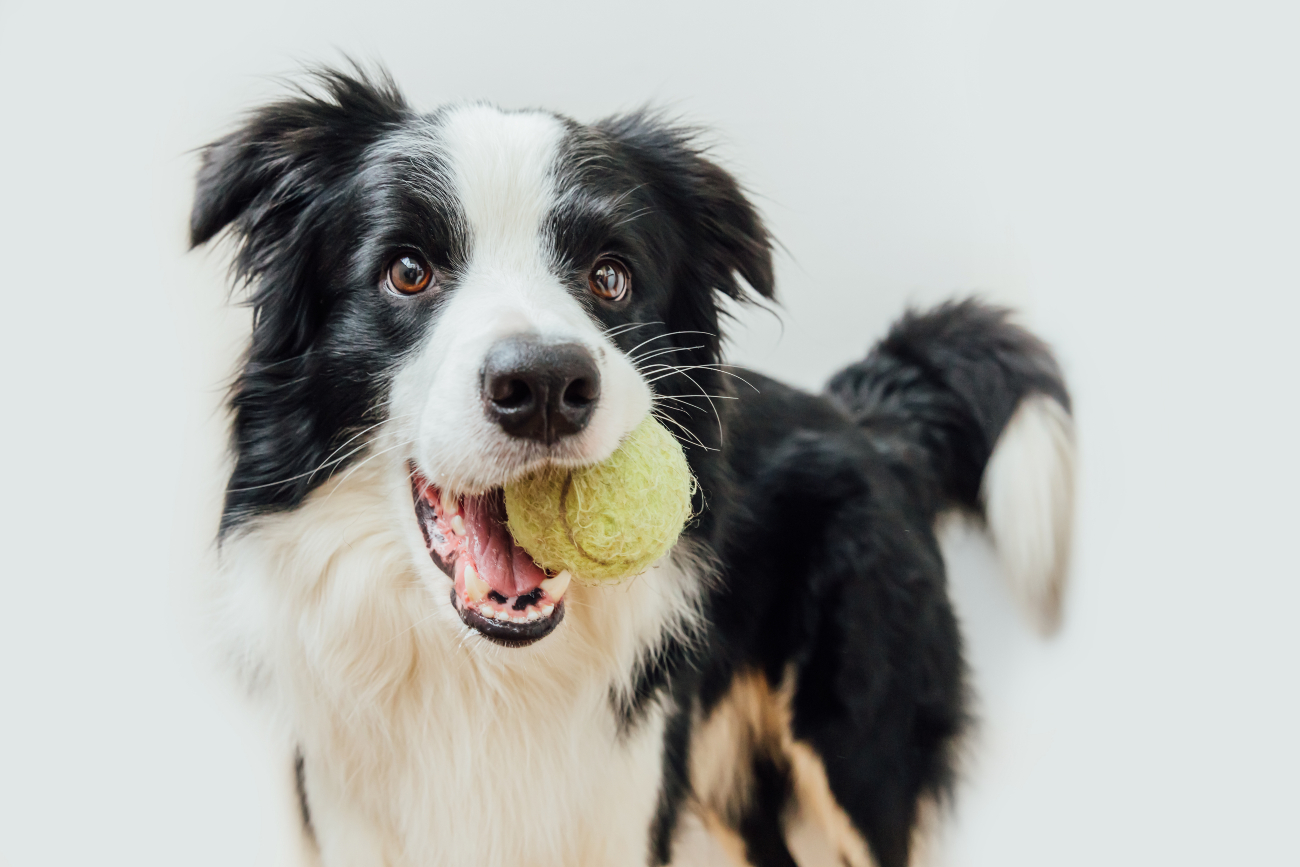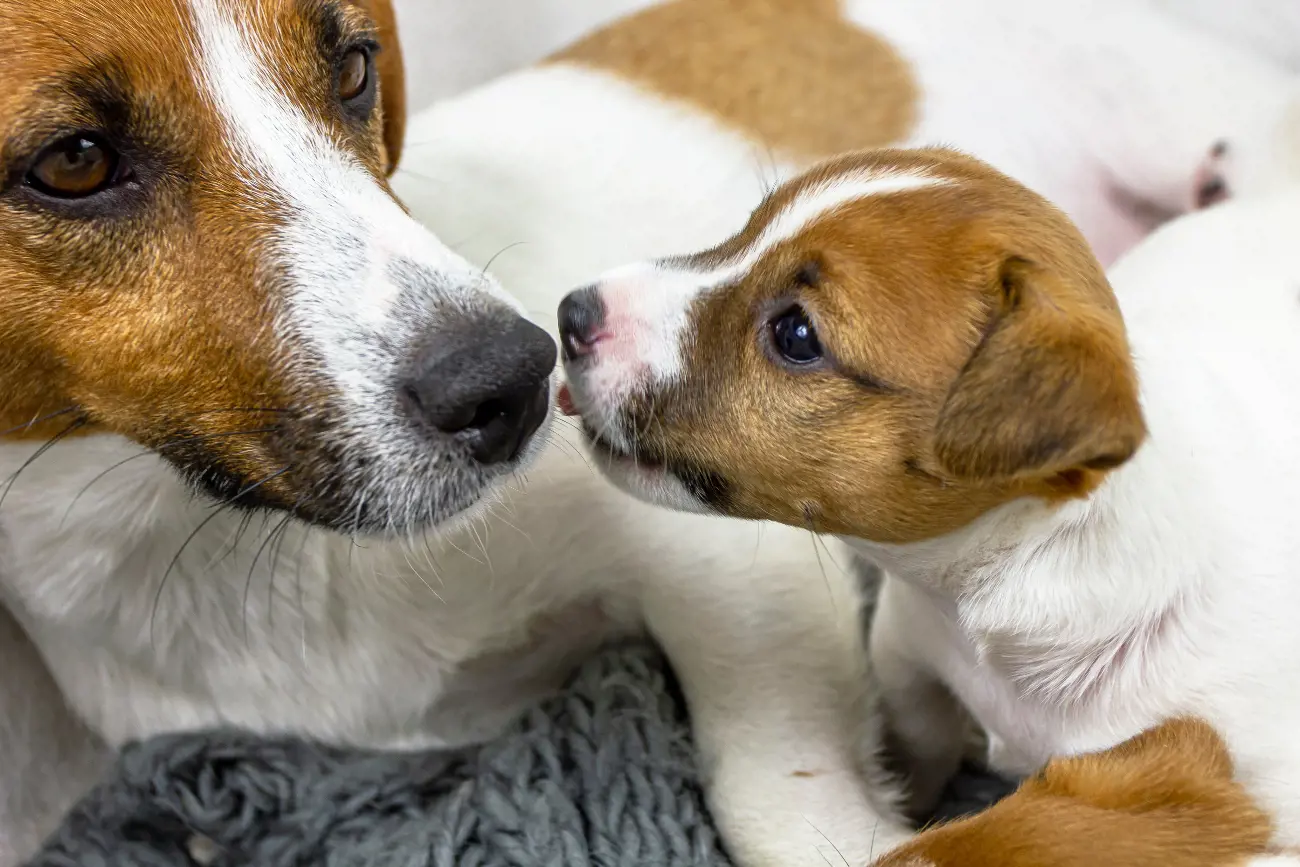How to choose the right pet for you
15th July, 2020
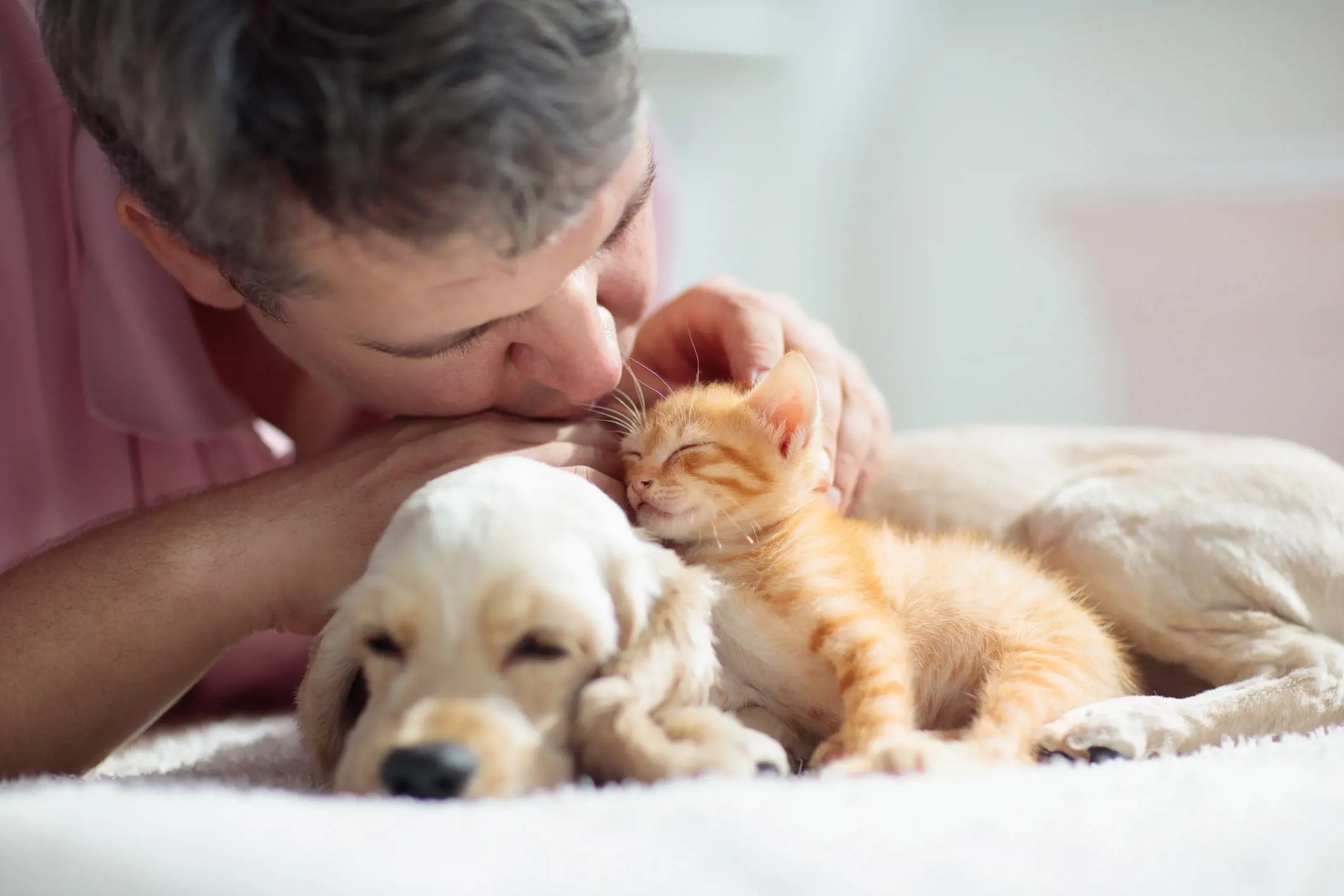
Cats and dogs can be wonderful companions but how do you decide which animal is right for you? There are lots of different factors you should take into account, from the amount of time you have to spare to your lifestyle and budget.
Let’s take a look at the most important things to think about in choosing between a cat and a dog.
Whichever you choose, make sure you take out an insurance policy for your pet before buying an animal to protect you against unexpected costs.
Pet ownership in the UK
According to PDSA, half (50%) of all UK adults own a pet; 24% of adults have a cat, 26% have a dog and 2% of people keep a pet rabbit. There are 10.9 million pet cats in the country and 9.9 million pet dogs. That’s a lot of fur!
We have lived alongside cats and dogs for thousands of years.
Dogs traditionally helped with tasks such as herding sheep, hunting game and protecting property while cats helped to keep pests such as rats and mice out of our homes.
Of course, pets can be life-enhancing companions. Many people report that keeping a pet helps them to manage stress and anxiety, alleviating loneliness and giving life a greater sense of meaning.
A study by scientists at the University of Missouri-Columbia found that people had 10% reduced blood pressure for around 15-30 minutes after petting a dog. Similar findings have been made for interaction with cats and other common pets.
Keeping a pet is often said to help reduce the risk of allergies for children as well as developing an early sense of responsibility and respect for animals.
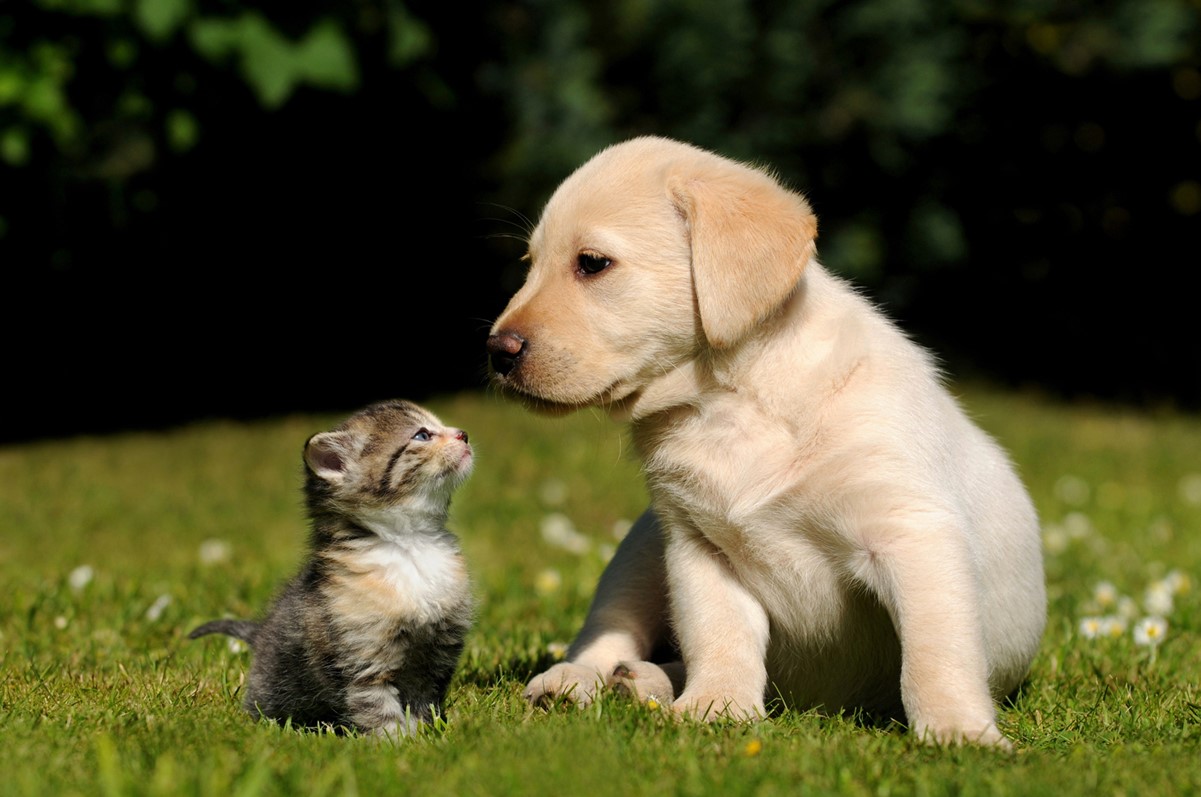
Do people divide into pet types?
There are plenty of people who keep both dogs and cats, so it simply cannot be true that everyone is either a dog person or a cat person.
If you grew up with a cat or dog, you might not feel that a home is complete without one.
For others, the look of a particular animal or breed is a strong draw. While it’s fine to enjoy how gorgeous animals are, looks alone should never determine your choice of pet.
Suitability is about much more than just liking a pug’s squishy face or a bengal cat’s beautiful markings.
Let’s look at the other issues you should consider.
You might be more suited to having a dog if…
You have plenty of time on your hands
Having a dog is a real commitment. Dogs are herd animals who love company. If you work long hours or need to be away from home a lot, it’s likely your dog will struggle without you.
Dog walkers can help fill the gap but you do need to be able to spend lots of time with your dog to keep them happy.
In addition to walking, there’s training, feeding, play and clearing up after your dog, not to mention vet appointments.
Far too many dogs are rehomed each year because their owners don’t have enough time to meet their needs.
Some dogs need more attention than others. A puppy is a time-intensive commitment, needing extra care for socialisation, house training, vet care, puppy classes and general training.
Older dogs usually can be left alone for longer periods, although this will depend on the breed and individual.

You love the outdoors
The average dog owner walks more than 1,000 miles and plays 2,080 rounds of fetch with their pet each year.
Dog owners also average two arguments a week with family members about whose turn it is to walk the dog.
While some breeds take more walking than others, the reality of dog ownership is treading the pavements multiple times every day, in all weathers.
Failing to give your dog enough exercise can impact their health and behaviour.
Of course, walking a dog can boost your activity levels and improve your health, as well as connecting you with nature by getting you into open settings more.
For many people, long walks are a key attraction of dog ownership, but if you prefer to stay indoors you might want to think again before getting a dog.
You have a fair idea of what your next decade looks like
Dogs live an average of around 10 years, although some breeds such as the Chihuahua, Toy Poodle and Dachshund live much longer – 15 or even 20 years.
There’s no way of saying for sure what your life will be like in 10 years’ time, but a stable outlook is best for taking home a dog.
If you plan to change your career or working pattern, move home or have another significant change of lifestyle, you need to consider how a dog would fit into that.
It’s best to get that six-month backpacking holiday out of the way before you bring a dog into your life.

You have surplus money to spend on a dog
According to the PDSA, you should expect to spend between £4,500 and £13,000 on your dog over its lifetime, depending on the breed.
Pet insurance is an important way of protecting yourself against unexpected costs such as vet bills or the cost of locating a lost pet. premium is much easier to manage than having to find cash in an emergency.
If your pet develops a medical condition, the insurance may cover these costs, which could be substantial.
You want to take your pet away with you
Most dogs love to be taken out with their owners for the day, or even accompany them on holiday.
This does mean you will be limited to dog-friendly accommodation and will need to make transport arrangements, either finding space in your car or getting paperwork in place to travel abroad.
Be sure to check what is covered in your pet insurance before you set off.
If you want to go away without your dog, a dog boarding service or dog sitter will be required.
This can be expensive. For cats, on the other hand, a sitter who visits the home a couple of times a day to play with your pet and top up food and water supplies will do the job.
Both cats and dogs can be prone to separation anxiety, finding the experience of owners leaving them for extended periods stressful and upsetting.
This is particularly the case if they are left in a cattery or boarding kennels – some animals find this no problem but others hate the disruption and change of sights, sounds and smells.
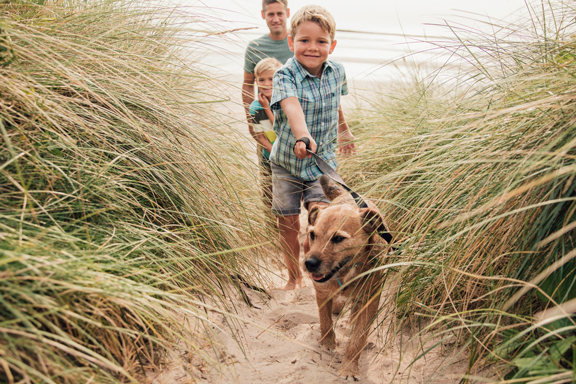
You might be more suited to having a cat if...
You have a busy lifestyle
Cats have a reputation for being low-maintenance pets – unlike dogs, they are often happy to be left for long periods without pesky humans around! This means a cat is often a good option if you work long hours.
However, every cat will need some of your time each day. You will need to find time to play with your cat, put out food and water, clean out the litter tray and generally make sure your pet is not bored.
If a cat does not have enough stimulation, they can become stressed out, bored or a bit naughty. For example, aggression or urine-spraying can be a way for a cat to tell you it needs more of your time.
Your home is on the small side
Cats are natural climbers, so they are not restricted to the floor space of your home. This means you can extend the space available to them by adding towers, wall perches, and cat shelves.
They will also explore surfaces like the tops of cupboards and wardrobes, typically picking out warm spots where they can snooze happily.
If your cat will be allowed outdoors, they can live in an even smaller home.
This might not be appropriate in some situations, for example if you live near a busy road, if your cat has a health problem such as FIV (feline immunodeficiency virus), there are lots of other cats living nearby or your cat is elderly.
If you keep your cat indoors, you will need to make an extra effort to provide stimulation and activity for your cat.
Puzzle feeders, climbing equipment, scratching posts and toys are all a good way to do this, as well as plenty of play sessions with your feline.
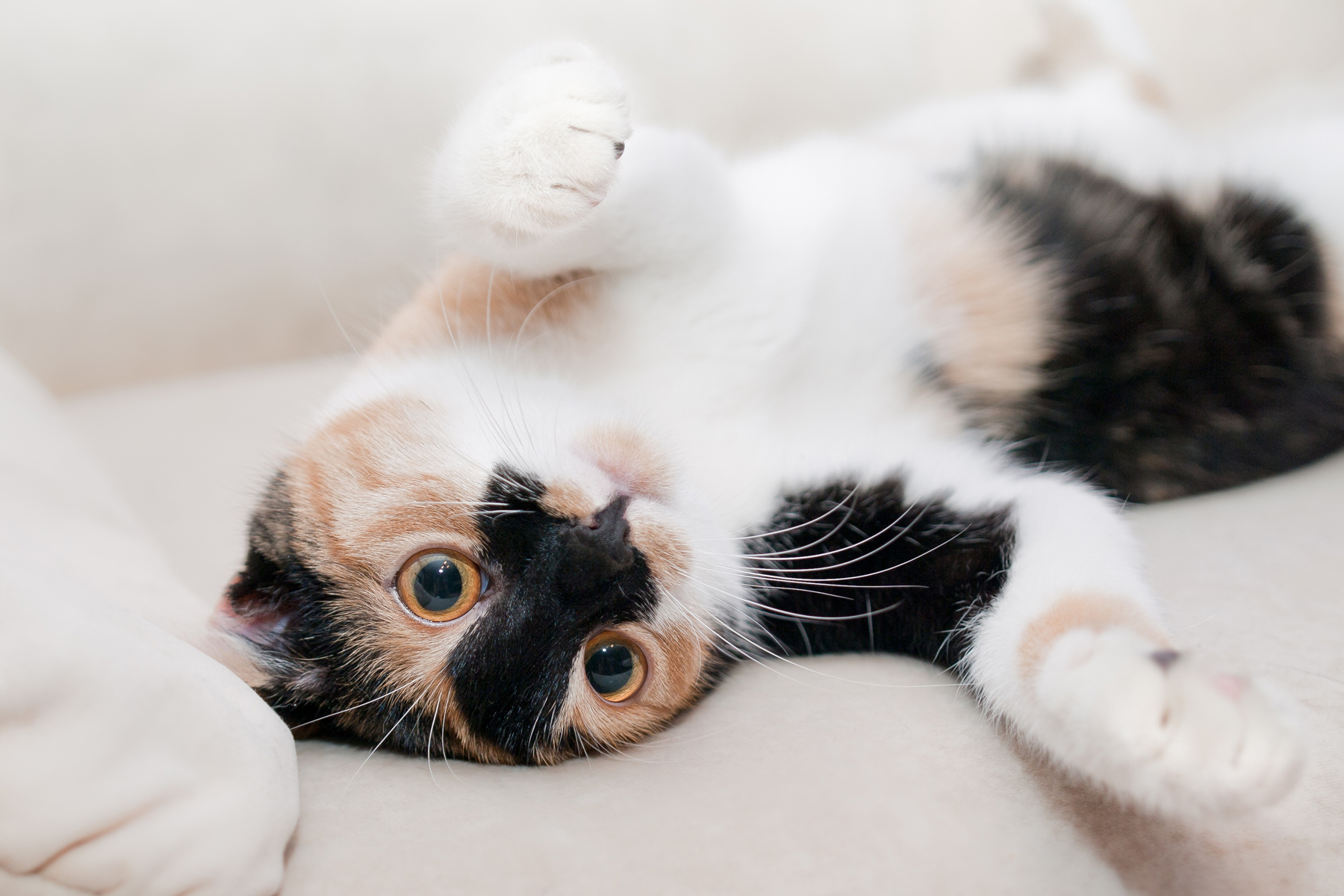
You have money to spare
Cats may cost less to own than some dog breeds, but you still shouldn’t underestimate the costs of keeping a cat in your household.
Vet bills are a particular problem – routine costs for check-ups can be expensive enough, but if your cat is unlucky enough to develop a health problem or have an accident, you could be paying off the bills for years.
Pet insurance is a must for every cat owner, ensuring you have cover for unexpected costs. Policies even cover expenses for things like advertising if your pet is lost, or compensating you if your pet dies.
You don’t mind a pet who doesn’t like cuddles
Some cats are simply not cuddly creatures. They might like to be in the same space as you, but many moggies do not enjoy being picked up or cuddled.
This might be out of nervousness or it just might not be their thing. One thing you learn early on as a cat owner is that you can’t make a cat do something it does not want to do!
Of course, many cats love nothing more than a good snuggle, but the independent streak in cats means this will be on their terms.
You need to be prepared to share your home with a cat who lives on its own terms, not yours.
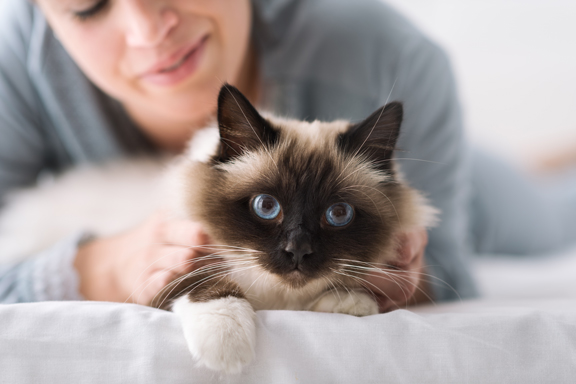
Considerations that apply to any pet
Whether you opt for a cat or a dog, it always pays to do your homework – research the breed you want, understand what kind of commitment you need to make to keep that animal and have a realistic impression of what life will be like with your new pet in it.
Dogs and cats come in all shapes and sizes – it is important to choose a breed and an individual animal that matches what you have to offer.
For example, how much time do you have to spend on grooming? Some animals require regular trips to the grooming parlour and brushing to avoid their fur becoming matted.
The extra moulting and hairs can also be a problem if you like your home to be spotless.
The level of intelligence and activity you want in a pet is also a key factor.
It can be fascinating and rewarding to keep a smart pet like a Collie dog or a Siamese cat but it takes more effort to keep them entertained.
How much noise are you prepared to tolerate from your pet? Some breeds of both cat and dog are much more vocal than others, yapping or meowing to alert you to something, guard their territory or simply for fun.
If you (or your neighbours) find the sound annoying, a quieter pet would be better for you.
You also need to think about other inhabitants of your home.
Do you have children now, or do you plan to have them soon? Are there other pets in the house? There are breeds of both cat and dog that tolerate company better, but this is often down to the individual animal as well.
When you buy a pet, if you go for a puppy or kitten, you should use a reliable, registered breeder with a good reputation.
An unscrupulous breeder could give you an animal which is set for health or behavioural problems.
If you’re happy to take home an older animal, a rescue centre should help you find a breed and individual animal that will be a good match for your home.
Whatever pet you decide to bring into your life, make sure you have the protection you need by taking out pet insurance. Contact Purely Pets today for a quote.
Helpful Pages
Recent Posts
Pet Insurance Quote
- 98% claims paid *
- Claims paid directly to vets
- 24/7 vet video consultations
- Interest free monthly payments

